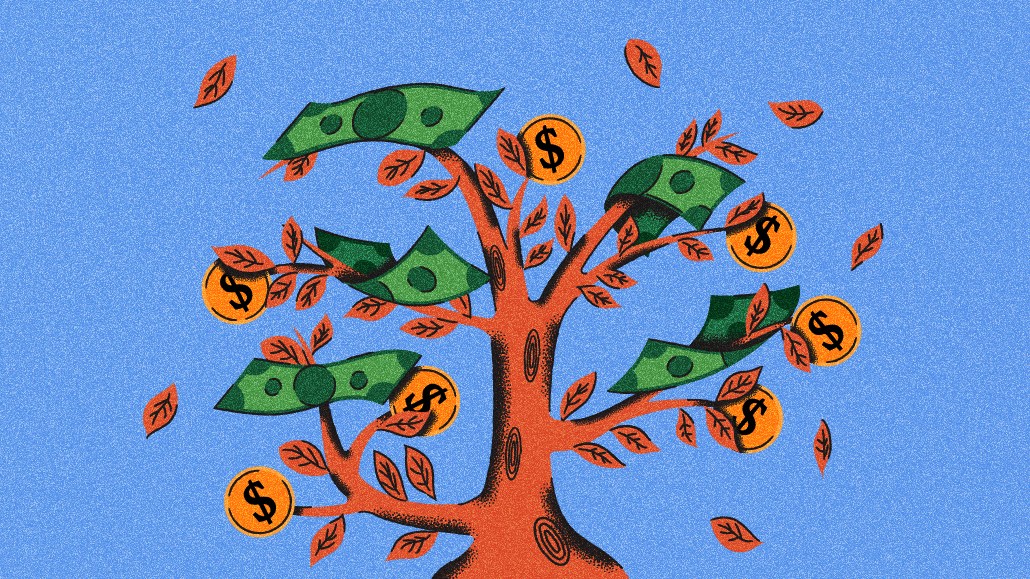Save 50% on a 3-month Digiday+ membership. Ends Dec 5.
Digiday+ Research Briefing: Meetings draw attendees to Cannes this year, but cost is a big barrier

This research is based on unique data collected from our proprietary audience of publisher, agency, brand and tech insiders. It’s available to Digiday+ members. More from the series →
Interested in sharing your perspectives on the media and marketing industries? Join the Digiday research panel.
Welcome to the Digiday+ Research Briefing, your weekly curation of media and marketing research insights. As a member, you have full access to the Digiday+ Research below.
In this edition, we share focal points from Digiday’s recently released reports about how meetings — not parties — are driving attendance at Cannes this year and how smaller publishers depend the most on digital channels.
Digiday+ Research: Meetings draw attendees to Cannes this year, but cost is a big barrier
The Cannes Lions International Festival of Creativity is underway on the French Riviera, but the party atmosphere is driving attendance less than you might think this year. That is according to a Digiday+ Research survey of 180 professionals from technology platforms and providers, publishers, agencies and brands. For those who are going to Cannes, meetings are the big driver. Fifty-eight percent of those who told Digiday they’re heading to the event said they’re doing so to meet with people.
Key findings:
Ad position: web_incontent_pos1
- Dealmaking was the second-biggest reason sending attendees to the festival — but by a wide margin. Just under a quarter of respondents going to Cannes (24%) said making deals is their reason for attending.
- Despite the event’s reputation, not one respondent cited parties as their reason for heading to the French Riviera. Only 7% of respondents told Digiday they’re going to Cannes to be seen, while just 2% said there’s no outsized reason to attend Cannes.
- Cost is the biggest barrier to attending the festival. More than one-third (39%) of respondents said the cost of attending is the reason they’re not in Cannes.
Digiday+ Research: Smaller publishers depend the most on digital channels
Ad position: web_incontent_pos2
Media businesses require a delicate balance between the traditional channels the industry is built on and the digital ones that have come to dominate publishing. And that balance looks different depending on the size of the publisher, according to a Digiday+ Research survey of more than 80 publisher professionals. Digiday’s survey found that small to medium-sized publishers depend more on the revenue they get from digital channels than their larger counterparts.
Key findings:
- Nearly two-thirds (65%) of publisher pros who work for small to medium-sized publishers (or those who made less than $50 million in revenue last year) said their companies generate most of their revenue entirely or mostly from digital channels. Meanwhile, half of publisher pros who work for large publishers said the same.
- Less than one-quarter (19%) of small to medium-sized publishers said they get most of their revenue entirely or mostly from traditional channels. Meanwhile, 25% of large publishers (or those who made $50 million or more in revenue last year) said they get most of their revenue entirely or mostly from traditional channels.

Digiday+ Research: Extreme pessimism about the end of the cookie levels off among agencies
As the end of the third-party cookie truly draws nearer, the winners and losers are likely to start emerging. In case you missed it, agencies are still feeling out who they think those winners and losers will be, but they’re doing so with notably less pessimism than they have in the past. That is according to a Digiday+ Research survey of more than 50 agency professionals.
Key findings:
- Agencies expect Apple to be the winner in the wake of the end of the third-party cookie. More than half of agency pros (53%) said that Apple will gain a lot or a little after the third-party cookie goes away, with 20% saying Apple will gain a lot. Meanwhile, 43% said Google will gain a lot or a little, and 32% said Meta will gain.
- The levels of pessimism agencies expressed about the end of the cookie have dropped significantly. Forty-three percent of agency pros said in Q2 2022 that they expected Meta to lose a lot from the end of the third-party cookie, but that fell to 27% in Q2 2023. And, while 26% said last year they expected Google to lose a lot, only 16% said so this year.
See research from all Digiday Media Brands:
More in Marketing

Ulta, Best Buy and Adidas dominate AI holiday shopping mentions
The brands that are seeing the biggest boost from this shift in consumer behavior are some of the biggest retailers.

U.K. retailer Boots leads brand efforts to invest in ad creative’s data layer
For media dollars to make an impact, brands need ad creative that actually hits. More CMOs are investing in pre- and post-flight measurement.
Ad position: web_bfu



